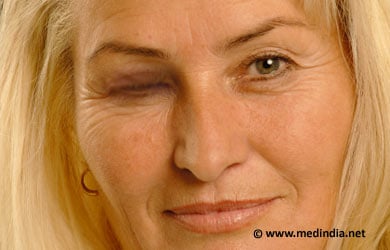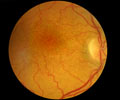- Why Does My Eye Twitch? - (http://www.webmd.com/eye-health/why-your-eyes-twitch)
- Eye twitching: 8 causes and remedies - (http://www.allaboutvision.com/conditions/eye-twitching.htm)
About
Eye twitching is a consequence of an abnormal, involuntary, uncontrollable contraction or spasm of the eyelid muscles or muscles surrounding the eyes.

Eye twitching has superstitiously been synonymous with an impending danger. However, far from predicting any adverse occurrence, it is usually a temporary nuance and a self-limiting condition that subsides in around a week. It occurs due to an abnormal, involuntary, uncontrollable contraction or spasm of the eyelid muscles or the muscles surrounding the eyes. In some cases however, the condition persists, resulting in frequent spasms throughout the day. In these cases, it could be linked to an underlying ailment affecting the eye or facial muscles, which can be treated.
Types of eyelid twitch include:
- Benign Eyelid Twitch: In this condition, also called eyelid myokymia, the twitch is caused by contraction of tiny muscles of usually one eyelid. The twitching is episodic and can last for variable periods ranging from seconds and minutes to months, but it always resolves on its own without any treatment.
- Benign Essential Blepharospasm: Benign essential blepharospasm occurs due to spasm of the muscles surrounding the eyes. It is more common in women and middle aged to older individuals. The condition starts with excessive blinking of eyes. In severe cases, the eyelids may be shut for several hours.
- Hemifacial Spasm: Hemifacial spasm is a condition that results in spasms of one side of the face including the eyelid muscles. It is usually caused due to irritation of the nerve supplying to the facial muscles.
Conditions that could result in eyelid twitch are:
- Eye Strain: Excessive straining of eyes can cause eye twitching. Lack of sleep, overuse of electronic gadgets such as computers, tablets, smartphones, or watching television for long hours can result in excessive twitching. In addition, an inadequate correction of a refractory error of the eyes with spectacles could also trigger eye twitching. Increase in general levels of stress or anxiety or excessive tiredness can also cause eye strain.
- Caffeine and Alcohol: Excess intake of caffeine and alcohol can lead to eyelid twitching. A reduction in intake of these beverages may help to control the condition.
- Blepharitis: Blepharitis is a condition where the eyelash follicles are inflamed. The eyelids appear red and irritated with attached scales. It may be associated with pain and twitching.
- Dry Eyes: The eyes are generally kept moist by a thin tear film. Loss of this tear film, as seen in some elderly individuals, results in dry eyes. Dry eyes are also common in people who sit in front of computer for long hours, wear contact lens and take certain medicines such as antihistamines and antidepressants. Excessive dryness of eyes stimulates twitching. Lubricants help to treat dry eyes.
- Eye Infection or Irritation: Conjunctivitis or infection of the lining of the eyes can result in twitching. A source of irritation on the cornea or conjunctiva also causes twitching. These causes of twitching are diagnosed on examination.
- Nutritional Imbalance: Certain nutrition deficiencies such as magnesium deficiency may be linked with eyelid twitch.
- Allergies: People with eye allergies have itchy and watery eyes. The release of histamine into the lid tissues and tears results in eyelid twitching.
- Brain and Nerve Disorder: Although very rarely, brain and nerve disorders are linked to eyelid twitch. These include:
- Bell’s Palsy: Bell’s palsy is a condition where the facial nerve is affected. It results in not only eyelid twitching but also paralysis of one side of the face. The patient may also have difficulty with closing one eye, eating and drinking, or smiling. He/she may experience drooling of saliva from the angle of the mouth and drooping of the eyelid.
- Cervical Dystonia: Cervical dystonia is a condition where the tone of the neck muscles is increased, resulting in an abnormal positioning of the head. It may be accompanied by eye twitching.
- Parkinsonism: Parkinsonism is a condition characterized by tremors, slow movement, difficulty with speech and muscle stiffness. It occurs due to decrease in the levels of a chemical called dopamine in the brain. Eye twitching may be a feature accompanying Parkinsonism.
- Tourette Syndrome: Tourette syndrome is a neurological condition where the patient suffers from sudden brief, repetitive movements of a group of muscles, referred to as tics. Tics in the muscles around the eyes results in twitching
- Medications: Antiseizure medications and anti-psychotic drugs could result in twitching of eyelids. In addition, drugs that cause dryness of eyes like antihistamines and antidepressants may also be associated with twitching. A history of use of these medications should be elicited from a person complaining of eye twitching.
Frequently Asked Questions
1. Which doctor should I visit in case I suffer from eyelid twitching?
You should visit an ophthalmologist in case you suffer from eyelid twitching.
2. How should eyelid twitching be treated?
Minor changes in lifestyle that reduce eye strain can help to control eyelid twitching. These include sleeping adequately and controlling caffeine and alcohol intake. Botox injections control eyelid twitching by paralyzing the eyelid muscles. In some cases, a surgical procedure called myomectomy is used, in which some of the nerves and muscles of the eyes are removed.
3. When does eyelid twitching indicate a serious problem?
Twitching of the eyelid is usually a benign condition and is not due to a serious problem. However, in some cases, if the eyelid closes completely due to the spasm, it could affect vision. A drooping upper eyelid could indicate a neurological problem. Redness and purulent discharge from the eyes accompanying eye twitching indicates an infection, which requires immediate treatment.








